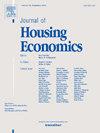The impact of loss aversion on seller behavior in the housing market
IF 2.4
3区 经济学
Q3 ECONOMICS
引用次数: 0
Abstract
This study explores how loss aversion influences seller behavior in the housing market, employing both the reservation rule and the number-of-offers rule approaches. We show that loss aversion can increase the reservation value in an infinite-time model under the reservation rule, and a disposition effect can arise solely from reference dependence with risk-neutral sellers, consistent with prior research. In contrast, in a finite-time model with specific deadlines, the prospect of forced sales at a loss in the final period incentivizes sellers to opt for earlier sales, leading to dynamic fluctuations in the reservation value, both upwards and downwards. This finding adds a novel dimension to the existing literature. Furthermore, employing the number-of-offers rule, we find that loss aversion can lead sellers to await more offers, supporting the negative correlation between prices and time on the market.
损失厌恶对房屋市场卖方行为的影响
本研究采用保留规则和报价数量规则两种方法,探讨损失厌恶如何影响房屋市场中的卖方行为。结果表明,在保留规则下的无限时间模型中,损失厌恶可以增加保留值,并且只有与风险中性卖家的参考依赖才会产生处置效应,这与先前的研究结果一致。相比之下,在具有特定截止日期的有限时间模型中,在最后阶段被迫亏本出售的前景激励卖方选择更早出售,导致保留价值上下动态波动。这一发现为现有文献增加了一个新的维度。此外,利用出价数规则,我们发现损失厌恶会导致卖家等待更多的出价,支持市场上价格与时间之间的负相关。
本文章由计算机程序翻译,如有差异,请以英文原文为准。
求助全文
约1分钟内获得全文
求助全文
来源期刊

Journal of Housing Economics
Multiple-
CiteScore
3.30
自引率
4.20%
发文量
35
期刊介绍:
The Journal of Housing Economics provides a focal point for the publication of economic research related to housing and encourages papers that bring to bear careful analytical technique on important housing-related questions. The journal covers the broad spectrum of topics and approaches that constitute housing economics, including analysis of important public policy issues.
 求助内容:
求助内容: 应助结果提醒方式:
应助结果提醒方式:


